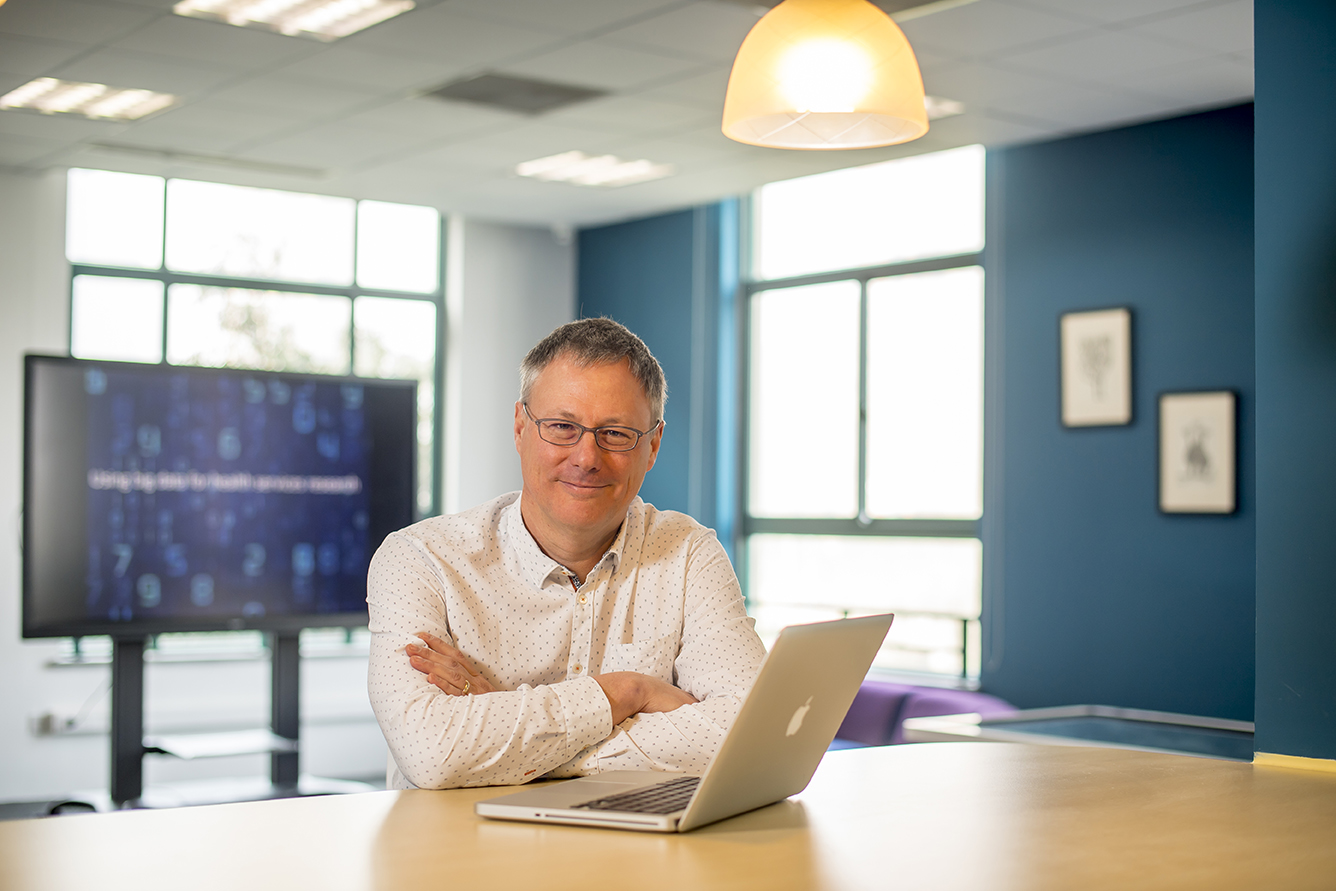
April 18, 2018, by Sophie Moyses
Improving patient care through data: Professor Richard Hubbard
Professor Richard Hubbard, Li Dak Sum Chair Professor in Economics at our Ningbo China Campus talks about how he is working to transform patient care in China and beyond.
Can you explain your research?
My work uses data accumulated as part of routine clinical care to improve the way patients are looked after. We’re taking techniques we have developed in the UK and trialling them in China for the first time. In Ningbo, we are trying to establish a new centre for evidence-based healthcare to better manage chronic diseases such as high blood pressure that are emerging in China. It will change lives by allowing us to set up cost-effective guidelines to improve healthcare, working out the best way to use funds so we can provide the best treatments. Long-term it should help move the care of these patients from hospital to the community
How has the University of Nottingham in Ningbo China supported you?
We’ve had great support in Ningbo and within a relatively short period of time have developed a critical mass of people working in healthcare research. The synergy I see between the studies we want to do and my colleagues in precision imaging, for example, relates to lung cancer patients and their safety during surgery. New MRI techniques that are being developed at University of Nottingham China show great promise to help us to select the correct patients to have operations.
Why is collaboration important?
If you want to change healthcare, you need the full spectrum of clinical effort from analysing routine data, and producing clinical guidelines, to understanding the economics. Then you need the leadership and the change management to push those changes through. The interesting thing about the team that we have in Ningbo is we have all those elements, from people who know about analysing data to people who know about change management and clinical leadership. Our collaborations are developing both on the campus at Ningbo and with local institutions in Ningbo. On campus, we are starting to work with health economists and the computer scientists, and we’ve developed strong links with local hospitals, the Public Health Department and the Centres for Disease Control (CDC).
Where would you like to take your research next?
The scale of this research is potentially very large. Ningbo has a population of about eight million people, for which we have some of the best digital healthcare records in China. We’d be very keen to develop the Ningbo area as a cohort to use these healthcare data and I think the methods and the models that we get from these data will be applicable across China. I see our research pushing through routine clinical data in China to look at chronic disease management. We’re starting with cardiovascular disease, I would also like to look at respiratory disease, diabetes and move into the area of cancer care.
Why did you join the University of Nottingham Ningbo China?
We worked hard in the UK to establish healthcare data-based research and I was interested in taking on the challenge of doing a similar thing in China. I guess for me the interesting bit about China is that we’ve taken a slightly more holistic approach. In Ningbo we have pulled together a whole team that can move from data to policy. We don’t have that in the UK.
What advice would you give to someone starting out in research?
I think the best advice I would give any medic who wants to follow an academic career is to think about epidemiology and public health. Young doctors often get exposed to a lot of laboratory science at medical school, but not always to epidemiology. Epidemiology can make a big difference to the health of the population – and it is a fascinating subject.
No comments yet, fill out a comment to be the first

Leave a Reply